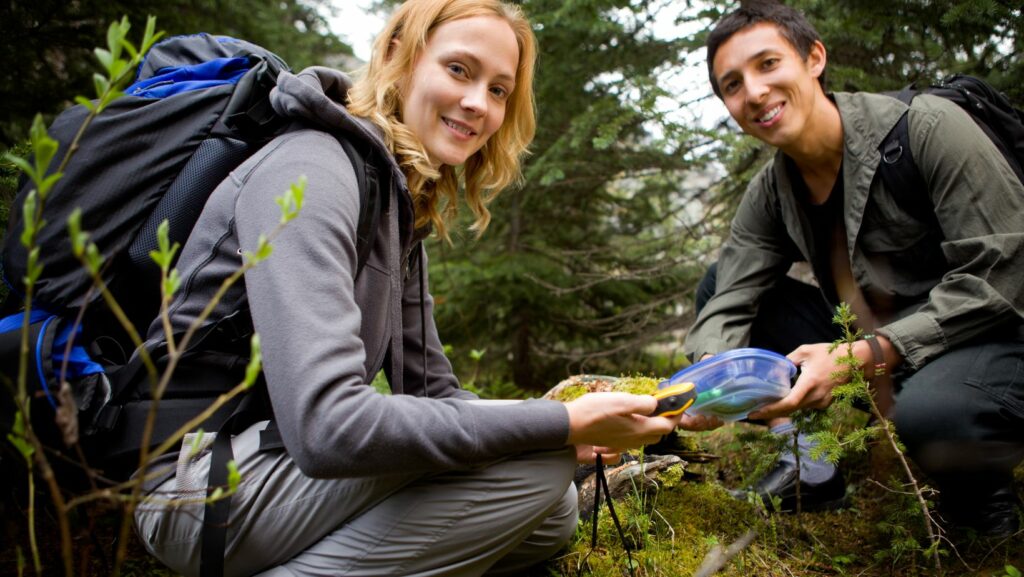Geocaching, the modern-day treasure hunt, has piqued the interest of adventurers worldwide. It’s a thrilling blend of outdoor exploration and technology, enticing explorers to plunge into the unknown. But how safe is this popular pastime?
Is Geocaching Safe
Geocaching operates as a global game of hide-and-seek. Participants, also known as geocachers, utilize GPS coordinates to discover hidden containers, termed ‘geocaches’, around the world. Facts prove that there exist over two million active geocaches distributed globally. These caches range from size – small as a dime, big as a large bucket. They take on various forms as well, spanning regular containers to more imaginative disguises.
 Initial steps prescribe for geocachers to create an account on a geocaching platform. After logging in, geocachers use the search function to find nearby caches. Once a suitable cache gets chosen, the geocacher obtains GPS coordinates and sets out on the hunt.
Initial steps prescribe for geocachers to create an account on a geocaching platform. After logging in, geocachers use the search function to find nearby caches. Once a suitable cache gets chosen, the geocacher obtains GPS coordinates and sets out on the hunt.
On discovery, geocachers log their find in the cache’s physical logbook. They may also trade items with those left within the cache, acting under the guideline ‘take something, leave something’. Lastly, geocachers log their encounter online, tracking their finds and sharing experiences within the community. This active interaction promotes both competition and camaraderie.
The fundamental principle of geocaching champions a ‘cache-in, trash-out’ ethos, encouraging participants to clean up areas while hunting for caches. Hence, this activity not only offers entertainment and a healthy dose of outdoor exploration, but also cultivates environmental stewardship.
Assessing the Safety of Geocaching
 Analyzing the safety of geocaching demands a comprehensive look at the potential physical and digital risks involved. On the physical front, geocaching leads participants into diverse environments. These can range from urban parks to remote woodland, bearing inherent hazards like uneven terrain, weather conditions and wildlife encounters. It’s always wise for geocachers to equip themselves with necessary gear and adhere to safety guidelines before embarking on a search.
Analyzing the safety of geocaching demands a comprehensive look at the potential physical and digital risks involved. On the physical front, geocaching leads participants into diverse environments. These can range from urban parks to remote woodland, bearing inherent hazards like uneven terrain, weather conditions and wildlife encounters. It’s always wise for geocachers to equip themselves with necessary gear and adhere to safety guidelines before embarking on a search.
Complementing physical safety, digital safety consideration is crucial. Geocaching platforms hold personal information, including user location data. Thus, robust privacy settings on platforms are fundamental to a safe geocaching experience. Assessment also extends to the online etiquette maintained in the geocaching community. Sharing experiences online stimulates engagement, but geocachers must avoid disclosing sensitive information.
In essence, successful geocaching isn’t merely finding treasures but ensuring a cautious and mindful exploration journey.
Geocaching Equipment and Tools
Geocaching, being an adventure activity, flourishes with the right equipment and tools. Acquiring GPS Units or Smartphones tops the list. These devices facilitate the functionality of GPS-based tracking, essential for finding geocaches. A good GPS unit, dependable under varying weather and topographical conditions, enhances the pursuit immensely.
Notebooks and pencils feature next on the essentials list. They facilitate log signing, letting geocachers note their presence upon finding a container. Moreover, tweezers often prove useful for removing small logbooks from tight containers.
 In the realm of digital tools, the Geocaching app stands out. It provides detailed information about geocache locations, including useful hints and logs from previous finders. Furthermore, a compass application may be beneficial, especially when GPS signals rebel in dense woods or extreme terrains.
In the realm of digital tools, the Geocaching app stands out. It provides detailed information about geocache locations, including useful hints and logs from previous finders. Furthermore, a compass application may be beneficial, especially when GPS signals rebel in dense woods or extreme terrains.
Reflective of the diverse geocaching scenarios, the equipment list varies too – a whistle for alerting in emergencies; torchlight for night-time or cave hunts; gloves to avoid cuts, scrapes or insect bites. Collectively, these tools enhance the experience of geocaching, fostering safe and enjoyable hunting.
Essential Gear for Safe Geocaching
Geocaching, a favorite modern treasure hunt, requires certain equipment not only to enhance the search but also to ensure safety. GPS units or smartphones prove critical for tracking coordinates and making sudden discoveries. Logging finds, a central part of the experience, calls for writing essentials like notebooks and pencils.
More specialized tools add assistance across various terrains and situations. Tweezers can recover caches from small spaces, a compass app directs when GPS signals falter, a whistle can alert others during emergencies, and torchlight illuminates dusk or night expeditions. Gloves prove instrumental in handling terrain oddities or safeguarding against elements. These items comprise the essential gear for geocaching, presenting it as a safe, delightful adventure.

